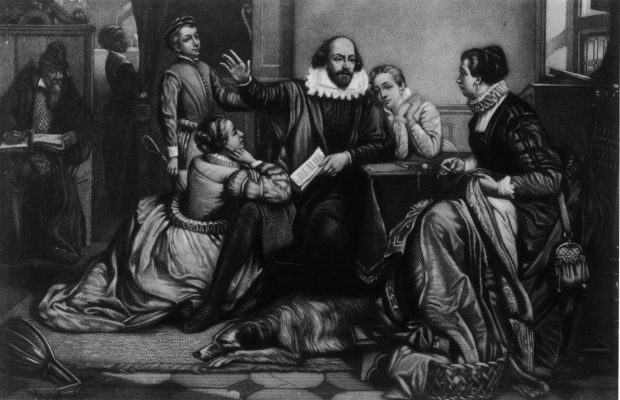Basil Ransome-Davies In Machu Picchu and at other sites We globetrotted, our future bright and clear, Our love synonymous with life’s delights, Devoid of anger, jealousy and fear. No hurt could scar us, we were young and free. Our youthful lust, white-hot, spurred our desire Till smothered one foul night in Italy That proved her a dissembler, an ace liar. How artful were her wiles, her double-deal. Though I thought her an angel on this earth, Her vows of love were sham, letting me feel A dupe cascading tears of bitter mirth. So now our paths diverge, spider and fly; In Rome our shameless fake romance will die.
Nicholas Hodgson We marched along the road, past an old mill, Through a deserted hamlet, to the Line. Now bleary-eyed, I looked at my pal Bill: ‘He can’t take any more.’ ‘No, he’ll be fine’, Said Jack, ‘he only needs’ (sly wink) ‘a wench. I tried that brothel: Lord, that mademoiselle= Made me forget the lice-infested trench’, (He belched) ‘A bit of heaven in this hell. Don’t look like that; I’m only human, mate’. ‘I’d just as soon be snug alone in bed’, Said Bill. We marched in silence to our fate At no great speed, half-sleepy and half-dead. Then, as dawn quickly overtook the dark, Cascades of music woke us, from a lark.
Max Ross My plots are crafted, clever and uncanny; Witchcraft intrudes; demon and sprite appear. Violent fate comes speedily to many When men plot hell on earth and devils cheer. I set my scenes in Rome or other towns; Daughters are gannets, greedy for a prize. The lucky prosper only as poor clowns And foolish thanes heed mad ambition’s lies. When challenges are made then tragedy Will follow, making learned men despair. No one’s inviolate; in adversity Bad and good fellows taste foul fortune’s fare. Sometimes for sport I alter man and miss And they in borrowed garments court and kiss.
Max Gutmann Perhaps a typo in some dog-eared book; scant onionskin that saves a cherished hand; the fragile glamour in the smell and look of wildflowers; earnest orators’ unplanned assertions; strange locution in a rushed, ambivalent, inexpert turn of phrase voiced in a midnight Ouija question, hushed, reheard verbatim on ensuing days; anonymous graffiti: there’s no squelching such subtle art, and when we chance to hear some boor who’s cheered us hitherto by belching break out as an impromptu balladeer, and find no supple beauty in his song that feeling may be genuinely wrong.
Alan Millard Poor Portia, such glum arias she sings, Sad as a blue tit ushering forth a song As doleful as the bell’s knell sorrow rings Whilst I with ample fervour for her long, Yet must in dark mould yearn to win her heart When neither gods nor folk my suffering see Or grant me kind rapport ere I depart From one who might love llamas more than me! I, keen as mustard, see delight in one With whom I’d prosper — offer her my hand, Rich ardour on her lavish and, when done, Elope to Rome or any far off land, And there, with subtle wisdom, quell despair And fondly stroke the shy locks of her hair.
D.A. Prince Please, no more news. True, fake, or pseudo/sham, let’s take a short break from mock-heroic scenes, from shallow arguments and knife-edge bets, who’s on the verges (and the TV screens)= of bringing down the country. Pistol-whipped or smothered by reports or drowned in ink, let MPs hectoring tones, each shabby script, be snugly silenced, leaving space to think how, honest or not, we have too much of news, and how its weasel ways just violate the place of those with the sincerest views, scoring graffiti on the ship of state. The bottom line: we all deserve some cheer. Enough of news. I hope I’ve made this clear.
Robert Schechter If this be ham, let beef be on my plate, yet both beat rice, methinks, to dine upon. You offer port? I Answer, thank you mate. Ha! Leave the bottle. Soon it will be gone.
A fine rosé will satisfy my nose. This pepper’s hot! Hello, my spicy friend! I don’t like ox for Dinner, heaven knows. Is a bell a sign this meal has reached its end?
I feel a chill. Escort me to my door. I’ll ask the ouija questions of the dead. Relaxing, I’ll shed garments to the floor and clear the fog of drinking from my head,
but since I’m rather shy, lock tight the latch. O liver! How I fear you’ve met your match!
Your next challenge is to supply an elegy on a piece of obsolete technology. Please email entries of up to 16 lines to lucy@spectator.co.uk by midday on 2 January. (The deadline of 14 December that appeared in the print edition has been extended.)





Comments